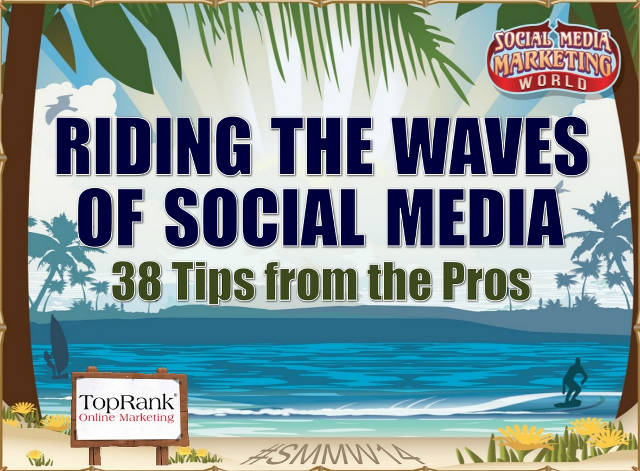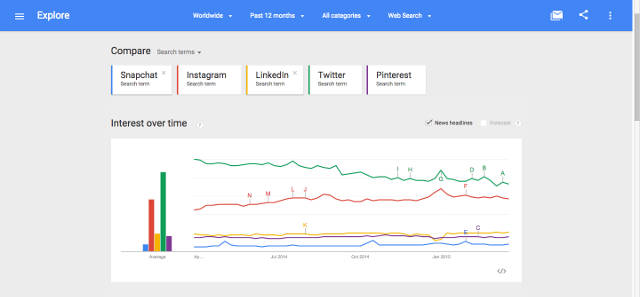
Ever wonder why Neil Patel can come up with eight blog post ideas per week while you can’t even finish one per fortnight? Well… me too.
For most of us, our passion for content writing is comparable to fireworks — it burns brightly and fiercely in the initial stage of passion, and quickly fizzles out within seconds, or in our case, days.
And part of the reason is due to the lack of content to write. Or so we think. Most of us just aren’t too sure what content we can write.
So I decided to look at the different type of articles on the web and realised there are about 6 general types of blog posts we can all create, no matter which industry we are in.
Let’s begin!
Table of Contents
Case Study

As humans, we are inherently drawn towards stories, and case studies make for very good ones. Generally, a case study illustrates lessons learnt, either success or failure, and provide takeaway points for the readers to ponder on.
It also makes for excellent word-of-mouth marketing material. By showing your readers how the heroes of the story suffered and at the end of it all overcame their problem, with your products, you would be able to build credibility, and at the same time, show how your products can help others who might have similar problems.
If your readers are managers, they can use your case studies as a good sharing material to educate their staffs. Or if they are your prospects, they can even use it as an effective testimony to persuade their management.
Why do readers like it?
Because it helps them to be prepared for similar cases — either through being cautious in not repeating the mistake or through understanding how the problem was resolved.
Possible problem:
If you are new to the industry, you might not have any credible case study to talk about.
Sample:
E-Consultancy has a whole treasure trove of case studies on social media, which you can read to your heart’s content.
News Updates + Your Opinion

News update + opinion posts refer primarily to critical industry news, which affects everyone in your industry, retold with your personal take on the matter through your blog.
Some example in the world of social media would be the constant Facebook algorithm changes, Twitter updates, or even Google’s SEO updates.
You will require the “first-movers” advantage in order to achieve the full impact of this type of blog post, as with anything that’s considered “breaking news” in the world of social sharing.
By being one of the first few to share critical (or shocking) news, you stand the chance to get your post viral as readers are most likely to share your post if it’s the first one they come across.
Why do readers like it?
If you prove yourself to be a consistent news breaker in the industry, then your readers would only have to follow your blog to keep up with the industry news, and that beats following 3-4 different blogs every day.
Furthermore, you will be providing a 3rd party opinion on the subject matter, which can be useful for discussions.
Difficulty:
The only problem here is considered small — you would have to keep yourself constantly updated with the industry news, which shouldn’t be a problem with the help of RSS feeds and Google Alerts.
Sample:
One such blog you can learn from would be Jon Loomer’s Facebook Blog. By following his blog, I can be sure that I am always up to date with Facebook’s ads and algorithm changes, and furthermore, the updates usually come with free tips on how to make use of or overcome these changes.
Experts Interview Post

Interviews provide tremendous values to your readers as they get to gain insights into what the experts think through your interview with them, and that is the best thing next to talking to the experts themselves.
But not only that, it also provides valuable exposure for both you and the experts. By hosting or accepting the interview, the both of you immediately gain access to new fans and followers.
It also helps to cement both your roles as experts in the industry through your constant discussions throughout the interview, thus exhibiting your opinions about the subject matter.
Interviews can be done in many formats such as podcast, video, or blog post. However, if you were to choose podcast or video as the medium, it would be best to produce a transcript, for fans who only have time for a quick read or simply prefers reading.
Why do readers like it?
Interviews are often more lively and engaging as compared blog posts. Furthermore, if it’s a live podcast, it also allows viewers to field their questions to the experts in real-time.
Difficulty:
Interview post might be one of the hardest types of blog post to write, not in terms of writing but getting the interview in the first place.
It might be hard to persuade someone to give you several hours of their time without a topic that interests them or without something in return — such as exposure to a large number of audiences.
Example:
Michael from Social Media Examiners often does interview podcast with social media industry experts or individuals with a breakthrough success in social media.
List Curation Post From Experts

List curation posts are often short and sweet. It starts off with a short introduction of what the post is about and jumps in the suggestions/advices from experts immediately.
It’s a light read that showcases the expert’s opinion, usually a short paragraph, or their recommendation for certain things.
Unlike interviews, where you have to prepare a series of questions for one individual, you will only need to think of one question to be asked.
Why would readers like it?
Because it allows them to access advice from a few people at once. Or in the case of recommendations, quality choices to choose from.
Difficulty:
This might be a bit easier as compared to the interview posts because you probably only need about 10-15 minutes of the expert’s time.
Example:
The Top Rank blog has a treasure trove of curated pieces of advice and opinions from social media influencers and experts. You can also take a look at how Food52 does it if you want something outside the context of social media.
Statistics Post

All of us love numbers in one way or another; they are important to us. We use them for reporting to our bosses, evaluating our options, making an argument, and tracking our performances.
But consolidating these numbers requires us to spend a huge amount of time to research and verify. And that’s one reason why people love infographics and blog posts that cover certain data.
It’s very easy to identify what type of data your readers are searching for using keyword planners like keywordtool.io or Google’s keyword planner. Simply search for [your industry] + [statistics] and you will probably a good idea of what to look out for.
Why would readers like it?
There are a lot of numbers on the internet, but they are all over the place, and not everyone has the know-how or even the time to search for these data.
Which is why you will be doing your readers a big favour by consolidating these data, and I am sure they will reciprocate your efforts by visiting your blog more often.
Difficulty:
You would need a lot of time to research and compile the data.
Example:
Hashmeta has a few statistics blog post which you can take a look at for reference.
“Top X-Number Blog For (Your Industry) You Must Follow” Post

It doesn’t matter which industry you are in, you probably have a handful of blogs which you follow on a religious basis — checking them every morning on the way to work.
So why not share these blogs with your readers? On one hand, your readers will be grateful for some useful reading materials, and on the other hand, the bloggers whom you have listed down in your blog post would be grateful for the exposure you have provided them — no matter how small it is.
In fact, you can take this chance to try to build a relationship with the writers of these blogs by contacting them and give them a heads up on your article, and asking if they want to include any message for your readers.
If you don’t really have the time for that, you can also tag the writers of these blogs when you share these articles on social media. If they noticed, read, and loved it, they will probably share it with their own readers too.
Why would readers like it?
Because all of us are suckers for knowledge and information, and we are always searching for the next blog to improve or broaden our knowledge
Difficulty:
Pretty easy. Just give your heartfelt recommendation.
Example:
Hashmeta did one such recommendation post last year, or you can also take a look at this post from the kitchen for a recommendation on blogs for gluten-free food!
I hope you find these few examples useful, and if you have any more suggestions, feel free to put them in the comments!


Thank you for sharing the information on different kinds of blog post which assists to get better SERP results, and i think it will be followed by more number of SEO Services in Singapore.
Woon Lan Ang, love the ideas here, and all true. You may also include another blog type, the “company + review of financial data” – we’ve done this recently for WIX (http://www.smallbusinesswebdesigns.net.au/blog/wix-a-review-of-the-numbers-behind-the-web-design-cms). We recently got a bit of traction with this post.